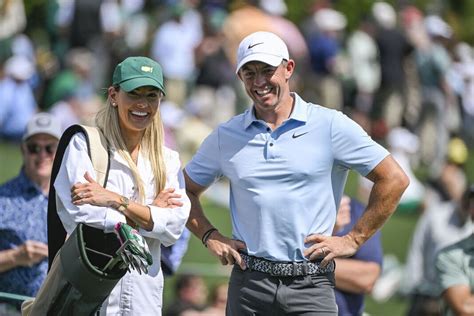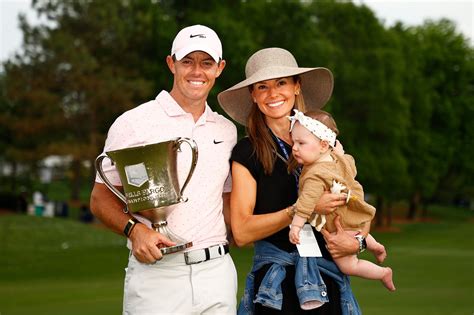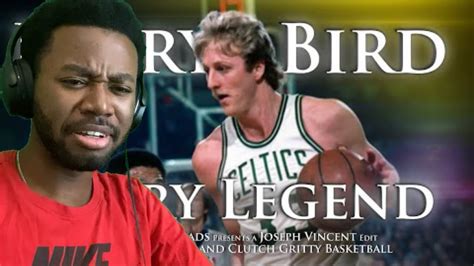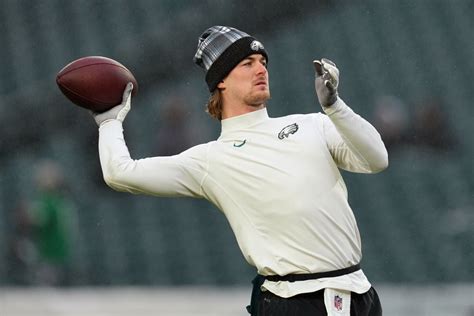
Rory McIlroy is navigating a challenging period, balancing his demanding professional golf career with personal matters as his wife, Erica Stoll, was notably absent from the U.S. Open at Pinehurst No. 2, while McIlroy candidly admitted to living somewhat of “two lives” amidst ongoing divorce proceedings.
PINEHURST, N.C. – Rory McIlroy is facing a complex balancing act as he competes at the U.S. Open while simultaneously navigating personal challenges involving his pending divorce from his wife, Erica Stoll. Stoll was not present at Pinehurst No. 2 as McIlroy began his quest for his first major championship in a decade, adding another layer of complexity to an already pressure-filled situation. McIlroy himself acknowledged the bifurcated nature of his life, stating, “I’m ready to play this week. I’m focused on this week. That’s really all I’ve got to say.”
McIlroy, who filed for divorce in May just before the PGA Championship, is attempting to compartmentalize his personal struggles and concentrate on the task at hand: contending at a major championship. He has been noticeably tight-lipped about the divorce proceedings, consistently deflecting questions and reiterating his commitment to his golf.
“I think over the last couple of years, I’ve tried to adopt a similar approach to that, which is, you know, I have a team of people around me that I trust implicitly, and I let them take care of all that stuff, and I just try to worry about golf as much as I can,” McIlroy explained.
The absence of Stoll at Pinehurst is significant, as she has been a regular presence at McIlroy’s tournaments in the past. Her absence underscores the personal turmoil McIlroy is currently experiencing.
McIlroy’s performance at the U.S. Open will be closely watched, not only for his golf but also for any indications of how the off-course drama is affecting his game. His ability to separate his personal life from his professional responsibilities will be crucial to his success.
Background of Divorce Filing
The divorce filing in May came as a surprise to many, as McIlroy and Stoll had been married for seven years and have a daughter, Poppy Kennedy McIlroy, born in 2020. The initial reports cited the marriage as “irretrievably broken.” McIlroy’s team issued a statement at the time, emphasizing the desire to ensure the proceedings were “respectful and amicable.”
“Rory McIlroy’s communications team confirmed today that a divorce has been filed. They stressed Rory’s desire to ensure this difficult time is as respectful and amicable as possible. He will not be making any further comment,” the statement read.
Impact on McIlroy’s Performance
The question remains: how will this personal upheaval affect McIlroy’s performance on the course? The mental aspect of golf is paramount, and any distraction can have a significant impact. McIlroy has demonstrated resilience throughout his career, but this situation presents a unique challenge.
Golf analysts and commentators have weighed in on the potential impact. Many agree that McIlroy’s ability to focus solely on golf will be a key factor in his success at the U.S. Open and beyond.
“Rory has always been an emotional player, and how he channels that emotion this week will be critical,” said Brandel Chamblee, a golf analyst for Golf Channel. “If he can use it as fuel, he could be a formidable competitor. If it becomes a distraction, it could derail his chances.”
McIlroy’s Recent Form
Prior to the U.S. Open, McIlroy had been in good form, with several strong finishes on the PGA Tour. He won the Wells Fargo Championship in May, signaling that his game was in a good place heading into the major championship season. However, the mental fortitude required to contend in a major is different, and the added pressure of his personal life could be a significant hurdle.
“I’m playing well. I’m feeling good about my game,” McIlroy said before the U.S. Open. “I just need to stay focused and execute my game plan.”
The Challenge of Compartmentalization
McIlroy’s strategy of compartmentalization – separating his personal and professional lives – is a common approach for athletes facing personal challenges. However, it is easier said than done. The ability to block out distractions and maintain focus requires immense mental strength.
Sports psychologists emphasize the importance of mindfulness and mental preparation in such situations. Techniques such as meditation, visualization, and deep breathing can help athletes manage stress and maintain focus.
“The key is to be present in the moment,” explained Dr. JoAnn Dahlkoetter, a sports psychologist who has worked with numerous professional athletes. “Athletes need to train their minds to stay focused on the task at hand, regardless of what else is going on in their lives.”
The Pressure of a Major Championship
The U.S. Open is known for its challenging course setups and intense pressure. The margin for error is small, and any lapse in concentration can be costly. Pinehurst No. 2, with its undulating greens and demanding approach shots, presents a particularly stern test.
McIlroy has a history of success at major championships, with four major titles to his name. However, his last major victory came in 2014 at the PGA Championship. The weight of expectation has grown over the years, and he is keenly aware of the pressure to break his major drought.
“I know what it takes to win a major,” McIlroy said. “I just need to go out there and execute.”
The Impact on His Family
Beyond McIlroy and Stoll, the divorce proceedings inevitably impact their daughter, Poppy. McIlroy has always been a devoted father, and his commitment to his daughter is unwavering.
“Being a dad is the best thing in the world,” McIlroy has said on numerous occasions. “It’s given me a new perspective on life.”
The Role of Support Systems
McIlroy has a strong support system in place, including his family, friends, and his team of advisors. Leaning on these relationships will be crucial as he navigates this difficult period.
“I’m fortunate to have a great team around me,” McIlroy said. “They’ve been incredibly supportive.”
The Public Interest
McIlroy is one of the most recognizable and popular figures in golf, and his personal life is inevitably subject to public scrutiny. The media attention surrounding his divorce has been intense, and he has had to navigate it carefully.
“I understand that there’s interest in my personal life,” McIlroy said. “But I’m not going to comment on it.”
The Future of McIlroy’s Career
The long-term impact of the divorce on McIlroy’s career remains to be seen. Some athletes thrive under pressure, while others struggle. McIlroy’s ability to adapt and overcome this challenge will be a testament to his character and resilience.
“Rory has the talent and the drive to achieve great things,” said Jack Nicklaus, an 18-time major champion. “I have no doubt that he will bounce back from this.”
Focusing on the U.S. Open
Despite the swirling personal issues, McIlroy is determined to focus on the U.S. Open. He has a clear game plan and is confident in his abilities.
“I’m just trying to stay present and focus on each shot,” McIlroy said. “That’s all I can do.”
The U.S. Open represents an opportunity for McIlroy to not only win a major championship but also to demonstrate his mental toughness and resilience in the face of adversity. The golf world will be watching closely to see how he performs.
Rory McIlroy’s performance at the U.S. Open could very well serve as a barometer for how he manages the confluence of personal difficulties and professional ambitions. The coming days will reveal whether he can indeed separate these “two lives” and rediscover the major-winning form that has eluded him for a decade, or if the personal strife proves too heavy a burden to bear on the demanding stage of Pinehurst No. 2. His ability to block out distractions and concentrate on each shot will be paramount, and his mental fortitude will be tested perhaps more than ever before. The spotlight shines not just on his golfing prowess, but on his resilience as a person navigating profound personal changes under the intense scrutiny of the sporting world.
The narrative surrounding McIlroy extends beyond the fairways and greens; it’s a human story of challenge, adaptation, and the relentless pursuit of excellence amid life’s complexities. Whether he triumphs or falters at Pinehurst, the manner in which he carries himself through this period will undoubtedly define a significant chapter in his already illustrious career. It is a test not just of skill, but of character, and it holds profound implications not only for McIlroy himself, but for how athletes are perceived and understood when they grapple with personal matters while under the constant glare of public attention.
The U.S. Open isn’t merely a tournament for McIlroy; it’s a crucible in which his ability to separate the personal from the professional will be rigorously tested, potentially reshaping his trajectory for years to come.
Further complicating matters is the high level of competition. Players like Scottie Scheffler, Xander Schauffele, and Viktor Hovland are all vying for the same prize, and they will not be sympathetic to McIlroy’s personal situation. The U.S. Open demands complete focus and unwavering concentration, and any mental lapses could prove fatal to McIlroy’s chances.
McIlroy’s experience will be a crucial factor in his ability to navigate this challenge. He has been in contention in numerous major championships, and he knows what it takes to win. However, the added pressure of his personal life could make it more difficult for him to stay calm and focused under pressure.
Ultimately, McIlroy’s success at the U.S. Open will depend on his ability to compartmentalize his personal life and focus solely on golf. If he can do that, he has the talent and experience to win. If he cannot, he may struggle to compete with the best players in the world.
The U.S. Open provides a stage for McIlroy to demonstrate his character and resilience. His performance will be closely watched, not only by golf fans but also by those who are interested in how athletes cope with personal challenges under pressure. Regardless of the outcome, McIlroy’s journey at Pinehurst No. 2 is sure to be a compelling story.
The dynamics between professional athletes and their personal lives are frequently scrutinized, but McIlroy’s situation serves as a stark reminder of the human element behind the game. The pressure to perform at the highest level while simultaneously navigating personal difficulties creates a unique challenge. McIlroy’s ability to balance these competing demands will be a testament to his mental strength and resilience.
The public’s fascination with McIlroy’s personal life also highlights the complex relationship between athletes and their fans. While fans are often eager to know about the lives of their favorite athletes, it’s important to remember that they are still human beings with private lives. McIlroy’s request for privacy during this difficult time should be respected.
McIlroy’s journey at the U.S. Open is a reminder that athletes are not immune to the challenges of life. Their ability to overcome these challenges and continue to perform at the highest level is a testament to their dedication and resilience. The U.S. Open is a stage for McIlroy to demonstrate these qualities, and his performance will be closely watched by the world.
The U.S. Open and Beyond
Looking beyond the U.S. Open, McIlroy’s long-term success will depend on his ability to address the issues in his personal life and find a sense of balance. This could involve seeking professional help, spending time with loved ones, or simply taking a break from golf to recharge.
McIlroy has the talent and the resources to overcome this challenge, but it will require time, effort, and a willingness to adapt. His fans will be rooting for him to succeed, both on and off the course.
The impact of his divorce on sponsorship deals also needs to be considered. McIlroy has lucrative endorsement deals with several major companies, and his personal life could potentially affect these relationships. However, McIlroy’s talent and popularity are likely to outweigh any concerns about his personal life.
McIlroy’s story is a reminder that even the most successful people face challenges in their personal lives. His ability to overcome these challenges and continue to thrive will be a testament to his character and resilience. The U.S. Open is just one chapter in this story, and the world will be watching to see what happens next.
The mental toll that divorce takes on an individual can be significant, and this can directly impact performance in high-pressure environments like professional golf. Managing stress, maintaining focus, and dealing with emotional distractions are crucial for success on the course. McIlroy’s ability to navigate these challenges will be a key determinant of his performance not only at the U.S. Open but also in future tournaments.
The support of his coaching staff, caddie, and other members of his team will be essential in helping McIlroy maintain his focus and confidence. Positive reinforcement, strategic advice, and emotional support can all play a role in helping him overcome the mental challenges he faces.
The golf community has a long history of supporting its players through difficult times. Many players have spoken out about the importance of mental health and the need for athletes to seek help when they are struggling. McIlroy’s situation serves as a reminder of the human element behind the game and the importance of empathy and understanding.
The broader implications of McIlroy’s situation extend to other athletes who may be facing similar challenges. His experience can serve as a source of inspiration and hope for those who are struggling to balance their personal lives with their professional careers. By speaking openly about his challenges, McIlroy can help to break down the stigma associated with mental health and encourage others to seek help when they need it.
McIlroy’s situation also invites a discussion about the pressures faced by athletes in the public eye. The constant scrutiny and media attention can amplify personal challenges and make it difficult to maintain privacy. Finding ways to protect athletes’ privacy and provide them with the support they need is essential for their well-being.
The balance between public interest and personal privacy is a delicate one, and McIlroy’s situation highlights the need for responsible reporting and respectful treatment of athletes’ personal lives. The focus should remain on their athletic achievements and their contributions to the sport, while also acknowledging their humanity and their right to privacy.
McIlroy’s performance at the U.S. Open will be a testament to his resilience and his ability to overcome adversity. His journey is a reminder that even the most successful people face challenges, and that it is possible to navigate these challenges with grace and determination.
The lessons learned from McIlroy’s experience can be applied to other areas of life as well. The ability to compartmentalize, manage stress, and seek support are valuable skills that can help anyone overcome challenges and achieve their goals.
McIlroy’s legacy will extend beyond his achievements on the golf course. His ability to inspire and motivate others through his actions and his words will be a lasting testament to his character and his resilience.
FAQ Section
Frequently Asked Questions (FAQ) about Rory McIlroy’s Situation:
1. Why was Rory McIlroy’s wife, Erica Stoll, absent from the U.S. Open?
Erica Stoll’s absence from the U.S. Open is related to the ongoing divorce proceedings between her and Rory McIlroy. McIlroy filed for divorce in May, citing that the marriage was “irretrievably broken.” The absence suggests a strain in their relationship as the divorce process unfolds. While not explicitly stated, her lack of presence at a major tournament where she has been a regular attendee is indicative of the personal difficulties McIlroy is currently navigating.
2. How has Rory McIlroy addressed the divorce publicly?
McIlroy has been intentionally tight-lipped regarding the divorce. His team issued a statement emphasizing his desire for a “respectful and amicable” process, and he has largely avoided detailed comments in press conferences. He has stated his focus remains on his golf and relies on his team to manage the situation, aiming to compartmentalize his personal and professional lives. He acknowledged having “two lives” at the U.S. Open without elaborating on the details.
3. What impact could the divorce have on McIlroy’s performance in the U.S. Open and future tournaments?
The potential impact is significant. The mental aspect of golf is crucial, and personal turmoil can affect concentration and focus. While McIlroy has demonstrated resilience in the past, the added emotional stress could negatively influence his game. Sports psychologists note the importance of mindfulness and mental preparation to manage stress and maintain focus. However, some also believe he could use this situation as fuel to enhance his performance.
4. Has Rory McIlroy had any notable performances recently despite the divorce proceedings?
Yes, prior to the U.S. Open, McIlroy won the Wells Fargo Championship in May. This victory indicated that his game was in a good place leading into the major championship season, demonstrating his ability to perform at a high level even amidst personal challenges. He has had a string of strong finishes proving his capacity to compete at the highest level.
5. What is Rory McIlroy’s strategy for coping with his personal challenges during tournaments?
McIlroy is employing a strategy of compartmentalization, attempting to separate his personal and professional lives. He relies on his team to handle the divorce proceedings, allowing him to focus on golf. He also emphasizes staying present in the moment and concentrating on each shot, using mental techniques to block out distractions. He appears to be attempting to create a boundary between his personal struggles and his professional responsibilities on the golf course.









